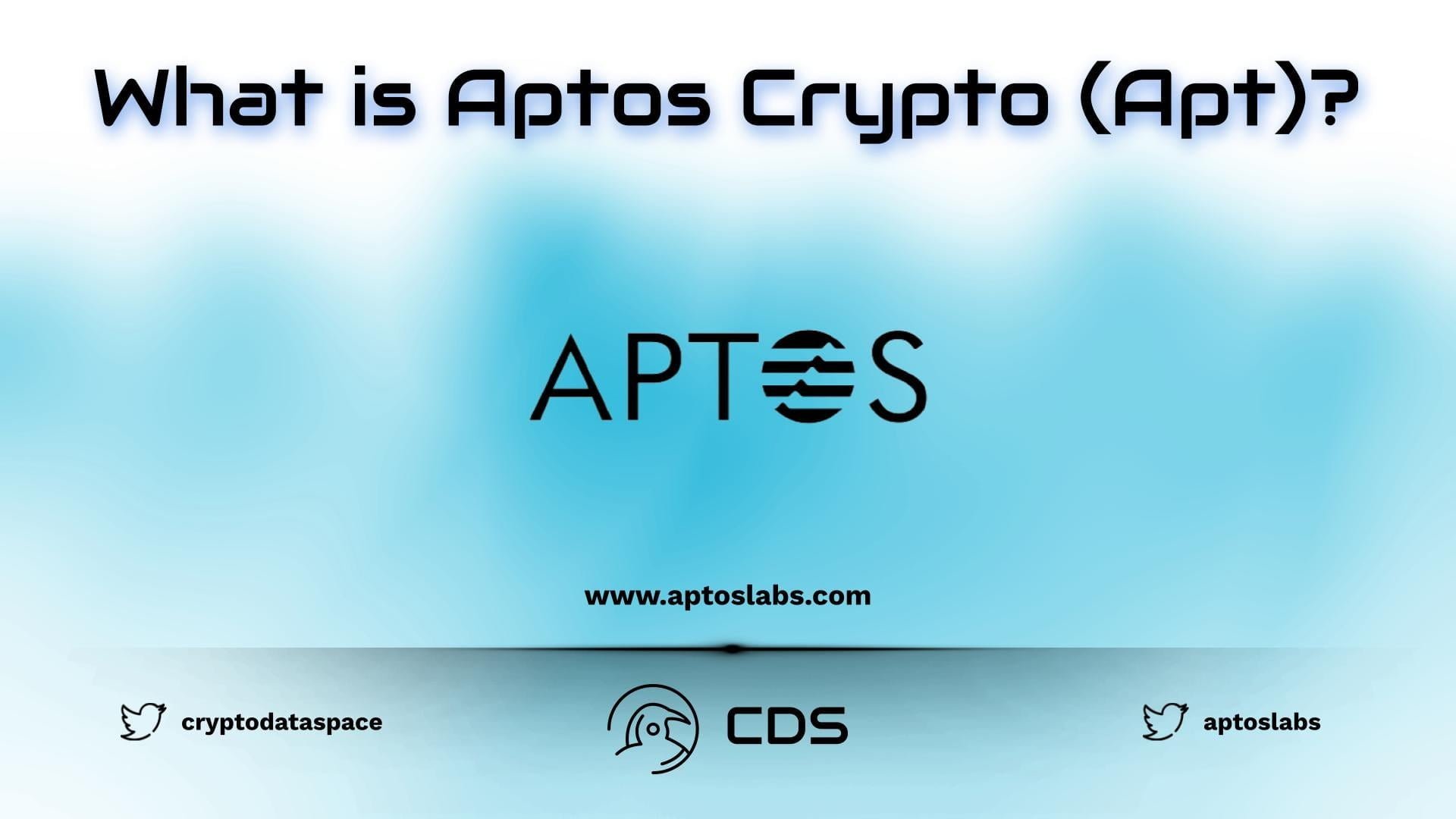Aptos (APT) is a Layer 1 Proof-of-stake blockchain using the Move programming language, created by former engineers from Facebook, now Meta.
What is Aptos Crypto (Apt)?
Aptos aims to provide users with reliability, usability, and scalability. Although the platform was launched in 2022, its history dates back to 2019. It all started when Meta acquired the technology company, Diem.
Meta is known for its initiatives in various blockchain projects in the past. However, it ended these initiatives due to insufficient efficiency. After Meta gave up, Diem was sold to Silvergate Capital for 182 million dollars.
Following the sale, Mo Shaikh (CEO) and Avery Ching (CTO) founded Aptos Labs. With the founding of Aptos Labs, the company has raised millions of dollars in investment from several Web3-focused VCs, including Andreessen Horowitz.

Aptos’ Features
The ecosystem is built with a focus on a reliable, scalable, and upgradeable Web3 infrastructure. The platform was designed by more than 350 developers to facilitate Web3 adoption. It aligns with its vision, offering consensus, smart contract design, system security, performance, and complete decentralization.
Move Supported
The blockchain integrates the Move software language based on the Rust programming language for fast and secure transactions. The platform takes Move Prover and other additional protection measures for smart contracts written in Move language. This way, users can avoid security vulnerabilities and issues while focusing on other application features.
Data Model
The data model used by the platform provides flexible key management and hybrid custodial options. This comes from the resources available within the Aptos data model. The data model provides transaction transparency and a more reliable user experience.
High-Efficiency Low Latency
Transactions on the Aptos blockchain use a pipelined and modular approach. This provides users with high throughput and low latency. This allows users to perform multiple transactions simultaneously while utilizing all resources, ensuring hardware efficiency and highly parallel execution.
Atomicity Support
Atomicity is when there are multiple requests within a single transaction in the DeFi sector. Such operations are typically handled by parallel execution engines that control the reading and verification of data. Unlike other parallel execution engines, the platform supports much more complex atomicity operations, making it easier for developers.

How Does Aptos Blockchain Work?
Aptos uses Block-STM, a self-developed parallel execution engine, along with the features listed above. This allows users to execute more than 160000 transactions at a single time. This is the targeted maximum number. The highest transaction so far was 2107. Transactions work as follows:
- Proof-of-stake (PoS) with BFT consensus and staked validators
- Segmentation into full nodes and light clients
- A parallel transaction engine with BlocksSTM to increase throughput.
- Flexible and simple Move language for custom smart contracts, security, and audit.
- Modular design where changes are introduced to individual nodes.
- Logical data model where resources cannot be discarded.
- Concurrent execution of all key stages of the transaction.
- Structured path to add scaling validators.
- Unified state sharing to boost validators’ performance.
Many blockchains use various parallel execution engines for smart contracts. However, this causes an enormous workload, and power consumption reaches a maximum. The platform, therefore, processes transactions simultaneously. Then, it starts the verification process. Transactions that fail or cannot be verified on the network are re-run by the STM. With this technology structure, the platform can perform operations that many blockchains cannot do in a single move.
APT Token
The APT token is a native token created by Aptos Labs for the purpose of allocating transaction fees. Users of the platform are required to stake a certain amount of APT tokens in order to use the features offered by the platform. Token staking rewards change every year but are currently 7%. Reward amounts will be lower in the future, but this can be changed by a governance vote. The total supply of APT tokens is set at 1 billion, and the distribution is as follows:
- Community 51.02% 510,217,359.767
- Core Contributors 19.00% 190,000,000.000
- Foundation 16.50% 165,000,000.000
- Investors 13.48% 134,782,640.233
The APT token is currently ranked #30 on CoinMarketCap. APT, whose price has risen 3.73% in the last 24 hours, is trading at $12.61 at the time of this writing.















Leave a comment